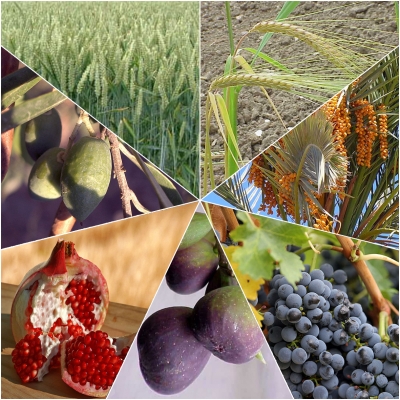Message for Tu BiShvat
What about the wine in the land of milk and honey?
In honor of Tu BiShvat, it seems appropriate to focus on the Bible's praise of the Land of Israel. Indeed, in 15 places in the Torah and 4 times in the prophets, Eretz Yisrael is referred to as "A land flowing with milk and honey". This is quite puzzling. Our land is blessed with a variety of agricultural produce and the Bible itself (Deuteronomy 8:8) focuses on 7 species –wheat, barley, grapes, figs, pomegranates, olives and honey. After the grains wheat and barley – mentioned first because of the importance of bread –wine follows because it is plentiful in this country. Bible scholars can confirm that vineyards are mentioned as being located throughout the land, and over many historical periods. It is surprising, then, that the Torah praises Israel as a land of "milk and honey" - overlooking wine which was prominent and widely available.
Also noteworthy is that when the prophet wants to describe King Solomon's period as a time of happiness, prosperity and peace, he writes "and Judah and Israel dwelled securely – each man under his vine and under his fig" (Kings I, 5:5) a phrase which appears 5 times in the Bible. Again, no mention of milk.
The honey praise, too, deserves discussion. Of the seven species mentioned above in Deuteronomy, honey appears last on the list and undoubtedly refers to the sweetness of the date. The reason why it appears last is that dates are not as common throughout Israel as the rest of the species. Indeed, only Jericho was known as the "City of Dates". Nevertheless, honey describes not only date honey, but also honey derived from figs and other fruit - so very common in Israel. In any case, we still have to understand the meaning of the word "milk" and the reason for its combination with "honey".
This issue was raised by the Sages of the Talmud (Ketubot 112a) who felt obliged to interpret "milk and honey" homiletically, namely that the fruits of the land are fat as milk, and sweet as honey. Various biblical commentaries understood this phrase as a description of the excellent conditions where the udders of cows' drip milk and the fruit is sweet as honey.
Prof. Daniel Gershenson (Classics, Tel Aviv University) notes that in ancient Greek literature we find the mixture of milk and honey as the food of infants and toddlers. According to this, "Land of Milk and Honey" may be understood as nourishing soil or nurturing Earth. Prof. Haim Breitbart (Life Sciences, Bar-Ilan University) points out that when the "honey" or ripened fig is harvested, a white liquid oozes forth which is referred to as "milk". Hence in the phrase "milk and honey" both terms refer to the sweet ripened fig.
A most interesting suggestion was put forward by Rabbi Reuven Margaliot in his volume Mikra u-Mesora. He posits that milk in this case refers to white wine - which was considered a healthy and fine wine. Among the various proofs he brings for this proposition, Rabbi Margaliot points to the blessing of Yaakov (Genesis 49:11): "He washed his garments in wine, and his clothes in the blood of grapes." Two types of wines are mentioned here: first, there is red wine which is "blood of grapes". But in red wine, it is impossible to wash clothes because it leaves a stain. Perforce, the intention of the paragraph: "He washed his garments in wine" refers to the white wine, which serves as a strong solvent removing the stains of the garment washed therein. Indeed, Midrash Rabba (ad loc.) cites Rabbi Yehuda as saying: "He washed his garments in wine - this is milk", presumably a reference to white wine.
Rashi (commentary to Yevamot 47a) points out that, following the destruction of the Second Temple, the blessing of "milk and honey" was canceled. However, with the return of the people of Israel to their land in our generation, we see the renewal of the prosperity of the land and the blessing of its plenty. We pray that it continues and multiplies.








Comments